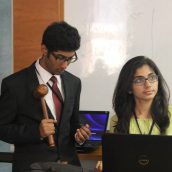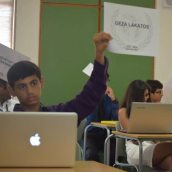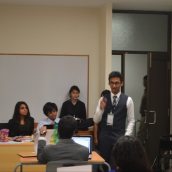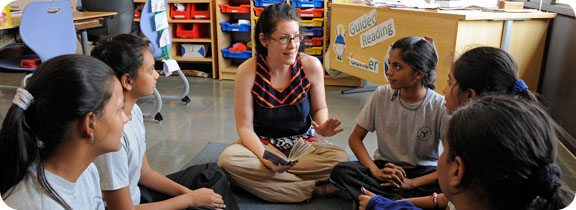
Employment Opportunities
The Aga Khan Academies is committed to hiring the best educators and support staff from their local communities and from all corners of the globe. The skills and ideas of the educators and staff are central to the student experience and to the Academies’ commitment to excellence.
The Academies provide a unique and exciting work environment for teachers, facilitators, facilities managers and administrators. Educators and support staff are encouraged to innovate continually and are given regular opportunities for professional and personal development.
Through teacher education and local capacity building, the Academies aspire to raise the status of the teaching profession and create conditions for growing numbers of talented people to explore a career in education.
Employment opportunities at the Aga Khan Academies are listed as they are made available on the AKDN Career Centre.
For more information about employment at the Aga Khan Academies or in the Aga Khan Development Network, visit the AKDN Career Centre.
The Aga Khan Academy, Mombasa Newsletter - March 2012
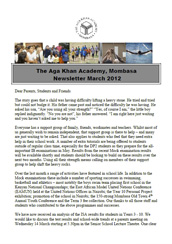
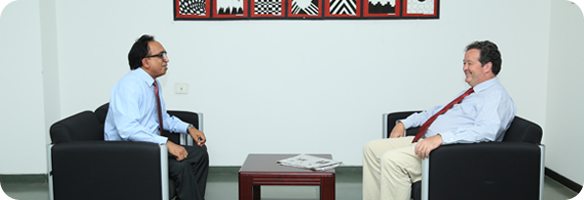
Policies & Procedures
The following policies are available at the Academy's administrative office.
- Academic Honesty Policy
- Assessment Policy
- International Baccalaureate Rules and General Regulations*
- Language Policy
- Personalised Learning Policy
* Copies can also be found on the International Baccalaureate website.
Parents are invited to contact the Academy if they would like to receive a copy of any of the above documents.
The Aga Khan Academy Hyderabad
Survey No: 1/1, Hardware Park
Maheshwaram Mandal, R.R. District
Hyderabad 501 510
Telangana, India
+91-40-66291313
+91-40-66291310
(Switchboard number/general enquiries)
or
Write to the Aga Khan Academy Hyderabad (online form)
AKA Mombasa Informational Session
Click here to learn more about the informational session that will be taking place in Kampala, Uganda.
Rising Beyond: Inspiring Debate at the MUN
The simulation opened with an aesthetic dance performance showcasing culture that exists in great depth, as well as having Birad Yajnik speaking about global citizenship and leadership. The opening ceremony was followed by the first session of this simulation which consisted of students prepared for heavy debate.
The first session was preliminary and introduced the agendas and topics of debate of each committee to all the delegates. DISEC (Disarmament and International Security Committee) was engaged in debating over the international intervention in Civil Wars; ECOSOC (Economic and Social Council) debated over the impact of science, innovation and technology in achieving the millennium development goals; the JCC (Joint Crisis Committee) went back into history and debated over issues concerning World War II; and lastly, we had the Press Corps which interacted with each committee and their delegates of the conference, and got intensely rooted in the simulation, in order to provide for a very holistic experience of the whole event that took place.The second day still carried on with the same passion and enthusiasm. The second session started off with a morning crisis update, which proved to be quite a surprise to all the delegates. However, the debates in each committee over the crisis initiated slowly, and later escalated into deeper and effective discussions. The Press were involved in initiating Crisis in each committee which proved to be operative as it provoked heavy debates and discussions, further on the day. The second day proved to be an ecstatic and progressive one as it stimulated every mind, which resulted in exciting preparations for resolutions for the last day. The Delegate Dance was of course one of the highlights of the second day of the simulation.
Eventually came the final day of the simulation. The day proved to be brief but tense as delegates of each committee had to come up with effective resolutions according to their agendas. Every committee except for JCC (as it was historical) and DISEC succeeded in coming up with resolutions. Although DISEC failed to pass a resolution, it still instilled the sense of intrigue, passion and enthusiasm to overcome problems that are faced on the surface of the planet – each day and every moment.After having come up with a variety of resolutions, the time for closing the simulation had come. This time was much awaited by the delegates as it was also an award ceremony. Titles such as “Best Delegate”, “Outstanding Delegate”, “Best Photographer” and “Best Reporter” echoed the halls of the venue wherein the ceremony took place. After having a hearing of speeches of inspiration and accomplishment by the Security General and the Executive Board, as well as teachers and staff who functioned as a backbone to the simulation; and watching proud delegates walking towards their much deserving awards, came the time of saying a proud goodbye to the Aga Khan Academy, Hyderabad’s second edition of the Model United Nations conference. Now awaits the third edition which shall happen in Fall, 2015.
By Akanksha Dev
Student Exchange 2019

Student Exchange 2019: Photo Galleries
Photo Gallery: AKA Mombasa students visiting AKA Hyderabad
Photo Gallery: AKA Hyderabad students visiting AKA Mombasa
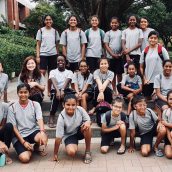
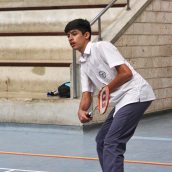
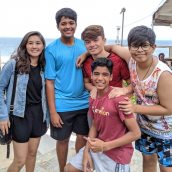
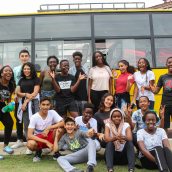
Join our students on their exhange journey by taking a look at our first photo gallery.
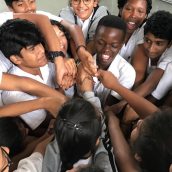
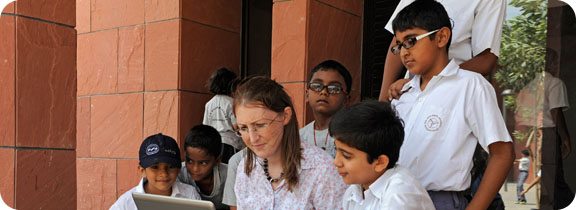
Teacher Resources
The Aga Khan Academies work to develop curriculum units that are relevant to cultural contexts of schools in the developing world. These resources develop students’ understanding of the Aga Khan Curricular Strands – Ethics, Pluralism, Cultures (with an emphasis on Muslim civilisations), Governance and Civil Society, and Economics for Development.
Resources are freely available for schools to download and use for education purposes, with appropriate attribution. We would welcome feedback about your experiences using these resources in your school. If you have comments, ideas for improvements, or would simply like to know more about our work, please send an email to: curriculum@agakhanacademies.org.
The Aga Khan Trust for Culture
The following units have been developed as part of a collaborative project between the Aga Khan Academies and the Aga Khan Trust for Culture. They follow the guidelines for IB Middle Years Programme (MYP) units, but can be used in any curriculum.
Parks and Gardens as Sanctuaries: An interdisciplinary unit for MYP1 students bringing together learning from language and literature or language acquisition (Phases 3-5) and the arts.
- Teachers' Guide
- Companion Slides
- Case Study (English language acquisition)
- Case Study (English language and literature)
Evolving Identities and Navigating Cultures: A unit to promote student well-being, which could be used as part of a pastoral or PSHE programme in MYP2.
Musical Expression is a Universal Feature of Human Experience: A music unit for students in MYP4 or MYP5.
